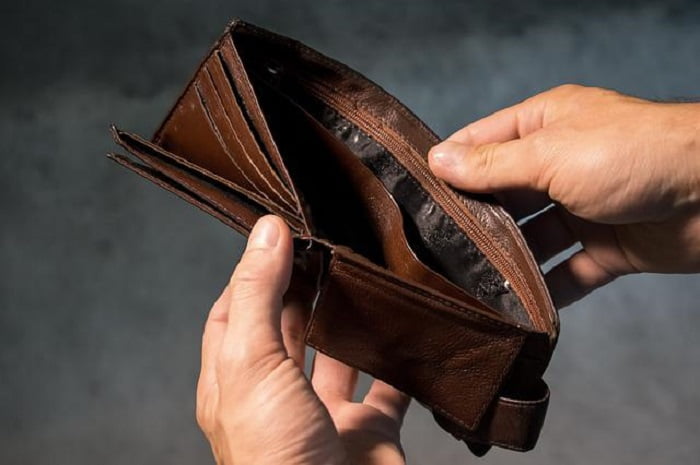There is no better feeling than conquering an addiction. Battling through rehab, achieving physical and psychological dependency, and coming out the other side is a massive achievement, so sobriety is absolutely worth fighting for.
With all substance use disorders, the road to recovery is not complete after rehab.
The threat of relapse is always present, but there are so many ways to optimise your chances of staying sober that there is absolutely no need to fear. Here are some of the most effective!
Get to know your addictive triggers

Understanding how your brain works are the best way to identify how and why you might be lured into relapse. During rehab, a huge pillar of making progress is learning to identify your addictive triggers, and the same technique can help with remaining sober in everyday life.
Whether it involves writing them down or reciting them to yourself, keeping your triggers firm in mind, as well as where they might appear in your everyday life, can be instrumental in protecting your progress and keeping your life relaxed and healthy [1].
For example, if you know that stressful situations have contributed to your wanting to abuse a substance in the past, make arrangements to limit their frequency or equip yourself for handling them more effectively.
An effective way of figuring this out is to attend a 12-step group, such as Alcoholics Anonymous or Narcotics Anonymous. An alternative would be SMART Recovery. These support groups promote sober livingand help you manage triggers such as anxiety and depression.
Understand the warning signs of relapse

It is strongly advised that those recovering from substance abuse don’t begin using that substance again. However, if that does happen, it is essential that usage is strongly controlled and monitored.
This usually entails watching substance use closely for any signs of relapsing into unhealthy consumption.
For example, you can keep an eye out for the following:
- Using a substance every day
- Using a substance without sociable cause
- Ignoring responsibilities
- Becoming socially isolated
Establish new habits and routines

Coming out of rehab, the worst thing you can do is resume the habits and routines you had before undergoing treatment. Your daily life likely contained numerous triggers which contributed to the development of your addiction, so it is important to try and start fresh.
As a result, you might want to rethink how you go about your day-to-day life.
Is there a new way you can complete your work, prepare your evening meals, or enjoy your social life? Can you try anything new, or approach life from an angle you haven’t considered before?
By staying away from your previous unhealthy schedule, you can encourage your brain to think and behave differently, creating a new distance between yourself and relapse, and maintaining sobriety.
Stay connected

Being alone makes you an easy target for relapse. So many people who develop addictions are not supported by friends and family, so a huge key to staying sober is ensuring that you are surrounded by supportive people who love and care for you.
The best way to ensure this is to be open and honest with your nearest and dearest. Tell them what you need from them, and nurture an environment where you can speak openly about your struggles and get the support that you need.
In addition, keep yourself involved with social events and friendly gatherings. Have fun, speak to people, and do everything you can to remember the joys of social interaction and spending time with people you care about.
Arrange for ongoing addiction support

Beating addiction and completing rehab can be the end of your engagement with formal treatment. However, many people often want to continue their relationship with organised support, and there are options available for doing this.
Aftercare can come in many forms. You can continue working through therapy – either with an addiction specialist or as part of a group – or attend regular check-ups to make sure your body continues to function healthily.
The benefits of aftercare are numerous. In terms of sobriety, it’s great for keeping yourself aware of how relapse can come about and refreshing your motivation for continuing to battle against the desire to use a certain substance.
Stick to what works

Everybody is different, and the ways in which we all find our peace with sobriety can vary drastically. Therefore, it’s really important when trying to stay sober to remember that you will have your own best practice and you are allowed to trust in what works for you.
Regardless of what it is, as long as you are protecting your physical and mental health, you should stick with what is working for you. Playing a sport, producing art, getting a new job – whatever keeps you in a positive mindset is golden, so follow through with it!
You must, however, be cautious not to replace one addictive behaviour with another. Those who are recovering from substance abuse must not, for example, turn to gamble as a way to keep themselves distracted.
Coping mechanisms must be healthy and sustainable.
Prioritise physical health

The mind is not an island, and the difficulties we have with resisting temptations can always be helped by taking care of our bodies. This is especially the case for those whose triggers are primarily harmful or overbearing patterns of thinking.
When trying to stay sober, remember that there are plenty of ways you can equip your body for the task.
Regular exercise can flood it with natural, pleasurable hormones that satisfy our brains, and eating healthily can work to ensure we are always thinking as rationally as possible.
Remember the financial aspect

Sometimes, staying sober is all about finding the right motivation to resist our intense urges. If we don’t want to do it for our health, our minds, or our careers, we can always take a moment to consider the financial implications of becoming addicted again.
Sustaining an addiction is a costly activity. Money can be spent daily to satisfy cravings, and individuals who have been through rehab will know just how much that kind of spending can affect daily life.
As a result of this, it always helps to take a moment to consider your finances when tempted by relapse. Will you be able to pay your bills? Will you be able to feed yourself? How will your dependent children and family be affected?
The answers will motivate staying sober.
Find and protect your sense of balance

Just like a diet, having a balanced lifestyle is the key to healthy living. When it comes to staying sober, so much of the work can be done by simply identifying the different aspects of your life that contribute to your balance and protecting them.
If this seems too abstract, take a moment to consider some of the following aspects of your life.
Protect these aspects, sustain them, and make sure they don’t overpower or disappear because of one another:
- Having alone time
- Spending time with friends and family
- Relaxing and having fun
- Working hard and achieving goals
- Treating yourself and rewarding your efforts
- Staying disciplined and sticking to rules
With give and take, push and pull, the desire to abuse a substance is dampened and your idea of a healthy lifestyle becomes stronger and stronger.
Get comfortable saying no

Peer pressure is a big deal when it comes to addictive behaviour and where substance abuse conditions start. Even as adults, we are influenced by our friends more than we like to think, but facing this area can be instrumental to staying sober.
If you still socialise with those who use a substance, get comfortable saying no to using it yourself. Explain why you are abstaining, and if your friends refuse to accept that, either go home or reiterate to yourself that you have done the right thing.
In most cases, your friends will understand and be on hand to support you. They will know that you have undergone a lot of strife to be in the situation that you are in, and the more you say no, the easier it will become, and the more people will understand your reasoning.
Consider what you are thankful for

Gratitude is becoming a hugely popular method for maintaining good mental health and remaining mindful throughout our day-to-day struggles. Remaining sober can also be an amazing way of maintaining motivation and resisting temptation.
Keeping a gratitude diary is often the method of doing this, but you can also practice gratitude by talking to yourself.
Regardless of how you practice it, the objective of gratitude is to list everything that you are thankful for, reminding yourself of the things in your life that you have to stay sober for and give you the will to stay out of rehab.
Remember your relapse prevention techniques

Prior to leaving rehab, you will have undergone a relapse prevention stage of treatment. This will have equipped you with a range of techniques which are designed to support you in moments of crisis where you want to relapse.
Staying sober can be as simple as remembering these techniques and putting them into practice [2]. There are a variety you can use, but even remembering one that works for you can be the difference between staying sober and slipping into substance misuse.
A popular example is HALT. When you think you are experiencing cravings, pause and consider whether you are Hungry, Angry, Lonely, or Tired. Rather than wanting a substance, your body might simply need to refuel or rest, and this can help prevent needless relapse.
Distance yourself from temptation

Time and place. These are simple things to remember, but if you know when and where your temptations exist, you can maximise your chances of staying sober.
For example, you might be fully aware that you feel most tempted to use a substance when walking past a bar, talking to a certain friend, or when you have just been paid. You can then take steps to put healthy boundaries between yourself and these kinds of situations.
In these instances, you might avoid a certain street with lots of bars on it, explain to your friend that you cannot talk to them about a certain substance anymore, or put your wages into the bank immediately or somewhere you cannot readily spend it.
Take care of your medical needs

In many cases, a substance is abused as a form of self-medication. Individuals begin using painkillers, opioids, or alcohol to sedate psychological anguish or numb physical pain, and when we are sober, such problems can still pose an issue.
In order to protect sobriety, it is really important to get proper treatment for such pains.
To prevent them from motivating relapse, go to a doctor and outline what you are struggling with. Proper medications will be both safer and more effective at helping you.
Keep yourself motivated with goals

The mind requires targets in order to be effective. Whether it is work, study, or remaining sober, we work best when we have something to aim for. It not only keeps our motivation up, but it gives us a sense of achievement and progress that validates our efforts.
Set yourself goals that strike the balance of being achievable while still challenging you. These can be either addiction-related or completely separate.
For example, you might want to achieve a certain degree of efficiency at work, hit a new personal best with your exercises, or successfully attend aftercare therapy sessions every week for a month.
Find ways to enjoy day-to-day life

The simplest yet most effective way to stay sober is to find ways to enjoy life. It might seem impossible or overly optimistic, but there is truly no better way to keep yourself away from substance use than to fill the gap it has left in your life.
This gap can be different in nature from person to person. For some, it served as a way to socialise, for others it dampened a sense of sadness or purposelessness. But finding a new way to achieve that same function in a healthier way can truly maintain sobriety.
Ways of doing this might include picking up a new hobby, discovering a new way of expressing yourself, finally seeing the doctor about a longstanding health condition, making new friends, or reconnecting with those you have fallen out of touch with.
Getting support from OK Rehab
If you are trying to stay sober, we at OK Rehab understand how far you have come in your recovery journey.
Battling through rehab and conquering your body and mind has been a huge challenge, and maintaining that progress is massively important.
For this reason, our team at OK Rehab want to help in any way we can! If you call us on 0800 326 5559, our team can give you guidance and advice, as well as answer your biggest questions to help you resist tempting situations and remain sober.





